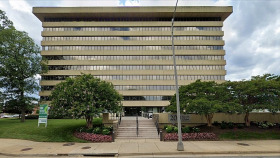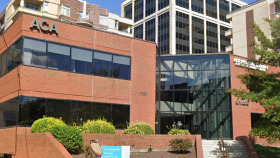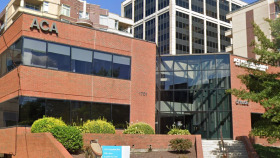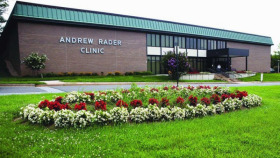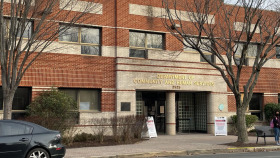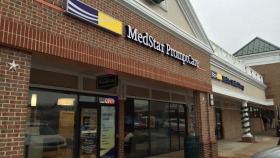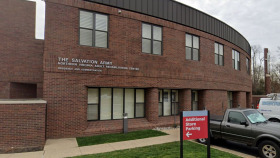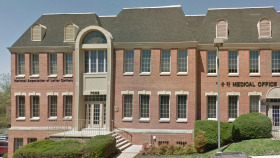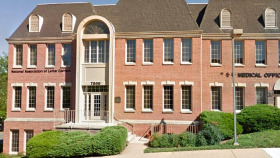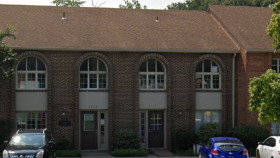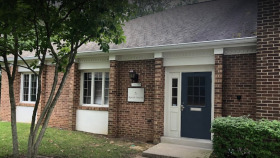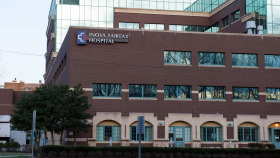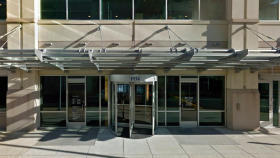Expert Insights
Recently, I read an article about a neuroscience researcher from The University of Texas at Arlington winning a three-year grant from the National Institute on Drug Abuse. Linda Perrotti, who is a psychology professor, is researching the differences in somatic, emotional, and motivational responses between males and females after they stop using morphine. According to the professor, her study is looking to develop data related to the ways females experience drug use, addiction, and recovery. I think this will be a very valuable study, particularly when it comes to figuring out how pregnant women are impacted by addiction.
~ Natalie Baker
How Expensive is Drug Rehab in Arlington?
The cost of drug or alcohol rehab in Arlington depends on several variables, including:
Whether you need inpatient or outpatient treatment
Features and amenities (luxury or standard rehab facility)
The length of time you spend in treatment
Whether you have health insurance and what your plan covers
Whether a particular facility accepts your insurance
Whether a rehab center receives state or federal funding, which can reduce treatment costs
The features and amenities provided by a particular treatment facility
In some cases, care may be free, depending on your financial status and the facility you select. Addiction treatment can also cost several thousand dollars per month at certain facilities, particularly luxury and executive rehabs.
If you have private or public health insurance, your plan can reduce your costs, provided you choose a facility that’s in-network with your insurance provider. Some facilities also offer various forms of payment assistance for eligible persons, such as financing programs and sliding-scale fee structures, which can make rehab more affordable.
Are There Low-Cost and Free Drug Rehab Centers in Arlington?
 State-funded drug and alcohol rehabs in Arlington receive funding through tax dollars, so they can help persons with limited financial resources access quality addiction treatment.
State-funded drug and alcohol rehabs in Arlington receive funding through tax dollars, so they can help persons with limited financial resources access quality addiction treatment.
These facilities provide evidence-based treatment for alcohol and/or drug addiction. Because they receive limited funding, they may not offer the most cutting-edge services. Be aware that at state-funded centers, priority may be given to certain populations, including pregnant persons and those living with HIV or AIDS. There may also be a waiting list to enroll in care because these facilities receive thousands of applications annually and have limited capacity.
To qualify for reduced-cost or free treatment at state-funded detox centers in Arlington, you’ll likely need to show proof of residency, income status, and your lack of insurance.
Do Medicare and Medicaid Cover Rehab Center Costs?
Medicare and Medicaid provide coverage for alcohol and drug rehab in Arlington at approved facilities. In Virginia, Medicaid covers a wide variety of medically necessary addiction treatment services, including:4
- Medical withdrawal management (medical detox)
- Residential/inpatient care
- Partial hospitalization and intensive outpatient programs
- Standard outpatient programs
- Medication-assisted treatment for opioid use disorders
- Peer support services
- Early intervention, care coordination, and case management services
Medicare also covers many of the same medically necessary addiction services as Medicaid. However, Medicare has four parts (A, B, C, and D), and each provides coverage for different services.5 Covered services and the amount Medicare will pay for those services depend on the plan you have. According to the Substance Abuse and Mental Health Services Administration, 22 addiction facilities within 10 miles of Arlington accept Medicare, and 36 accept Medicaid.6
Does Private Insurance Cover Addiction Treatment?
Private insurance, including marketplace plans, typically covers addiction treatment and mental health services. Under the Affordable Care Act, private insurance providers must cover these services, at least in part, because they’re considered essential behavioral health benefits.7
If you have a private insurance policy, the services it covers and the extent of coverage you have depend on your provider and plan. Some facilities may not be in-network with your provider, so you must verify your insurance coverage before choosing a treatment center. If you need help verifying your coverage at Arlington drug rehabs, you can call
800-681-1058
(Who Answers?)
for assistance.
How Does Arlington Compare in Alcohol and Drug Use?
If you are battling drug addiction in Arlington, Virginia, you can choose from many local treatment facilities. Inpatient treatment, outpatient programs, treatment for co-occurring mental health disorders, aftercare support, and medication-assisted treatment are all available within the city. Many facilities accept health insurance to reduce the cost of care, and some offer financial assistance for eligible individuals. Whether you’re starting your recovery journey or need additional relapse-prevention support, you can find accredited alcohol or drug rehab centers in Arlington that suit your needs.
Arlington, Virginia, like many cities located within major metropolitan areas, has struggled with high rates of alcohol and drug use for several years. Substance use statistics of note include:1,2,3
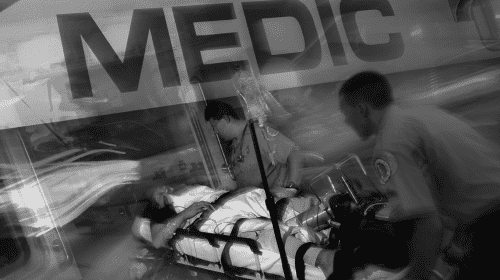
In 2021, of the 156 incidents involving opioids, 64 were non-fatal overdoses, 28 were fatal overdoses.
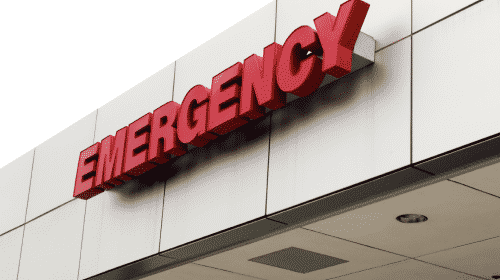
In 2020, there were 53.5 drug overdoses per 10,000 emergency department visits in Arlington County

In 2019, 5.3% of high school students reported driving a vehicle after drinking one or more times in the previous 30 days.

In 2019, nearly 17% of high school students were offered, given, or sold an illegal drug on school property.
Drug and Alcohol Laws in Arlington, Virginia
Arlington Drug Court Program: Arlington County Drug Treatment Court offers an alternative to incarceration for eligible, non-violent offenders who reside in Arlington County. This five-phase program provides an integrated system of judicial supervision and addiction treatment and requires a two-year commitment. Upon successful completion of the program, participants can have their cases dismissed and expunged.12
Arlington Naloxone Access: In Arlington, life-saving naloxone is available over the counter without a prescription under Virginia’s standing order. Free training is also available on how to recognize an overdose and administer naloxone to someone in need.13
Virginia Good Samaritan Law: This state law protects individuals who, in good faith, seek emergency help for an overdose, either for themselves or someone else. After reporting a suspected overdose, such persons cannot be arrested or prosecuted for possession or use of illicit substances or paraphernalia.14
Choosing the Right Level of Care
Addiction care exists on a continuum that offers a variety of services to meet the individual needs of people in every stage of recovery. On this continuum, various intensities include early intervention, medical detox, inpatient, partial hospitalization programs, intensive outpatient programs, standard outpatient, and aftercare support.
When you begin rehab, the level of care you’ll start at depends on your addiction status, mental health status, needs, and other factors. As you work through recovery, you’ll move along the continuum of addiction care based on your needs and your provider’s recommendations.
Medical Detox
When you stop using alcohol or drugs, you’ll likely experience withdrawal symptoms as your body begins its natural detoxification process. These symptoms can be highly distressing or even dangerous, especially if you have a lengthy history of substance use. A medical detox program can keep you comfortable throughout the withdrawal process and help your body eliminate toxic substances as safely as possible.
Inpatient
Inpatient Arlington alcohol rehabs provide 24/7 supervision and highly structured, evidence-based treatment for addiction and co-occurring disorders. In an inpatient program, you’ll live on-site at the facility for 30 to 90 days, or even longer, depending on your needs. Throughout your stay, you’ll have access to medical and addiction professionals.
Outpatient
After inpatient rehab, you may move on to a “step-down” outpatient program. These types of programs provide structured care at various intensity levels, allowing you to continue building on the skills you learned in residential care. Depending on your needs, your provider may recommend one of the following levels of care:9
Standard outpatient treatment: Standard outpatient is the least intensive level of addiction care and typically involves just a few hours of therapy per week. You’ll likely attend one to two weekly meetings and receive substance use and relapse prevention education in this type of program.
Intensive outpatient programs (IOPs): IOPs consist of many of the same evidence-based therapies as PHPs but provide fewer hours of weekly treatment. These programs consist of individual and group therapy, and treatment is provided by a multidisciplinary team of medical, psychiatric, and addiction professionals.
Partial hospitalization programs (PHPs): PHPs provide the most intensive outpatient care, with hospital-based sessions lasting several hours per day, five to seven days per week. These programs include individual and group therapy, evidence-based behavioral therapies, and medical care for those who need it.
Aftercare
Aftercare is any type of ongoing care you receive after completing your program. This type of care aims to help you avoid relapse and support you as you transition back to normal, daily life. Many Arlington alcohol rehabs provide aftercare planning and resources as part of treatment because they understand recovery is a lifelong process.
To ensure your aftercare plan sets you up for success, your team will work with you to identify supportive resources that meet your needs. When you finish rehabilitation, you’ll have a customized relapse prevention plan designed to help you stay strong in your recovery. Depending on your needs, aftercare can take many forms, including:10
- Ongoing individual and/or group therapy
- Counseling and education
- Sober-living housing
- Medication management
- Self-help groups
- Recovery support meetings, such as 12-step groups and SMART Recovery
- Alumni programs provided by your treatment center
How to Choose the Right Arlington Drug Rehab for You
Each person with addiction has different needs and can benefit from a different program. Some people may prefer a luxury residential setting with upscale amenities, while others may need a more flexible outpatient setting that allows them to continue working.
When narrowing your choice of Arlington drug rehabs, you must consider several factors, some of which include:
Program costs: Choose a drug or alcohol rehab in Arlington that works for your budget. If you need help paying for treatment, look for facilities that offer financial assistance or financing.
Treatment setting: Deciding whether you want to enroll in inpatient or outpatient will help you narrow down your treatment center options. If you’re unsure which type of care you need, an assessment can determine that.
Program features and amenities: If amenities are important to you, consider the features that each facility offers, such as private accommodations, spa treatments, gourmet meals, and recreational facilities.
Treatment philosophy: Some facilities use a holistic approach that integrates evidence-based and alternative therapies into treatment. Others take a faith-based approach to care that integrates spiritual practices into care. Think about what you prefer and choose your facility accordingly.
Specialized treatment for certain demographics: Some rehab facilities offer demographic-specific treatment for men, women, veterans, LGBTQ+ persons, and teens. If you think you can benefit from a specialized program, look for facilities that offer this type of care.
Visitor policy: If you want to visit with loved ones during treatment, compare visitor policies and choose a facility with visitation rules that work for you and your family.
What to Look for in a Quality Addiction Treatment Program
High-quality Arlington drug rehabs prioritize adherence to the highest standards of care for addiction. To help ensure you receive effective care, look for the following program characteristics, which are indicators of quality care.
Use of Evidence-Based Practices
Evidence-based addiction therapies and practices are proven to help patients achieve abstinence or a clinically meaningful reduction in drug and/or alcohol use. Some of these therapies include cognitive-behavioral therapy, contingency management, motivational enhancement therapy, family therapy, dual-diagnosis treatment, and medication-assisted treatment.11
Individualized Treatment Plans
Effective rehab caters to the needs of the individual and not their drug or alcohol use. You should look for the use of individualized plans in a quality program to ensure that the treatment plan will be tailored to your needs and preferences.
Customized Treatment Planning
Your plan should be closely tailored to your unique needs because there is no one-size-fits-all approach to addiction treatment. To ensure you receive individualized care that addresses your medical, emotional, psychological, cultural, and social needs, look for programs that provide personalized planning.
Licensed and Certified Staff
Addiction programs provide behavioral health and medical care, so all staff members delivering treatment should be properly qualified to do so. Look for facilities where providers hold the appropriate licensing and certifications to provide therapeutic services.
Aftercare Planning
Aftercare is a crucial step in the process that provides invaluable relapse prevention resources and support. Look for programs that include individualized aftercare planning as part of treatment, so you’ll have a relapse prevention plan when you finish rehab.
Low Provider-to-Patient Ratio
Effective addiction care hinges on highly personalized and attentive care. Rehab programs that have low staff-to-patient ratios can provide this type of care because treatment experts can spend more time with each patient.
Family Involvement in Treatment
Your family can play an integral, supportive role in your recovery. If you involving your loved ones in your recovery is important to you, look for programs that provide family therapy, counseling, and education. These services can help your family understand and support you as you work through treatment and transition back to day-to-day life.
Should You Travel for Drug and Alcohol Rehab in Arlington?
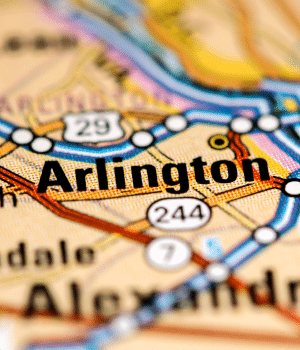 Traveling to an alcohol or drug rehab in Arlington may benefit you if you need to remove yourself from everyday triggers and situations that could interfere with your recovery.
Traveling to an alcohol or drug rehab in Arlington may benefit you if you need to remove yourself from everyday triggers and situations that could interfere with your recovery.
Relocating for rehab may also be necessary if your local area does not offer the resources you need. Ultimately, whether or not you should travel depends on several factors, including your insurance coverage, financial status, needs, and personal preferences.
If you’re ready to enroll in Arlington detox centers or rehab facilities, consider addiction treatment centers located in areas of the city that will not be triggering. Some neighborhoods you may want to think about include Ballston, which is known for its many research, technology, and science facilities. This highly walkable area of town also has easy access to public transportation if you need it.
Columbia Pike is another area to consider, as this neighborhood is known for its walkability, unique and vibrant feel, green spaces, cultural diversity, and year-round farmer’s market.
Resources
- Arlington County, Virginia. (2021). Opioid Incident Data.
- Virginia Department of Health, Arlington Partnership for Children, Youth & Families. (2019). 2019 Youth Risk Behavior Survey Results.
- Virginia Medicaid Department of Medical Assistance Services. (n.d.). Addiction and Recovery Treatment Services (ARTS).
- Medicare.gov. (n.d.). Mental Health and Substance Use Disorder Services.
- Substance Abuse and Mental Health Services Administration. (n.d.) Search for treatment.
- Healthcare.gov. (n.d.). Mental Health & Substance Abuse Coverage.
- National Institute on Drug Abuse. (2019, January 17). Treatment Approaches for Drug Addiction DrugFacts.
- Center for Substance Abuse Treatment. (2006). Substance Abuse: Clinical Issues in Intensive Outpatient Treatment. Treatment Improvement Protocol (TIP) Series, No. 47. Rockville (MD): Substance Abuse and Mental Health Services Administration (US).
- McKay J. R. (2009). Continuing Care Research: What We Have Learned and Where We Are Going. Journal of Substance Abuse Treatment, 36(2), 131-145.
- National Institute on Drug Abuse. (June 3, 2020). Evidence-Based Approaches to Drug Addiction Treatment.
- Arlington County, Virginia. (n.d.). Arlington County Drug Treatment Court Participant Handbook.
- Arlington County, Virginia. (n.d.). Overdose Reversal and Naloxone.
- Virginia Legislative Information System. (2022). Senate Bill No. 639.




